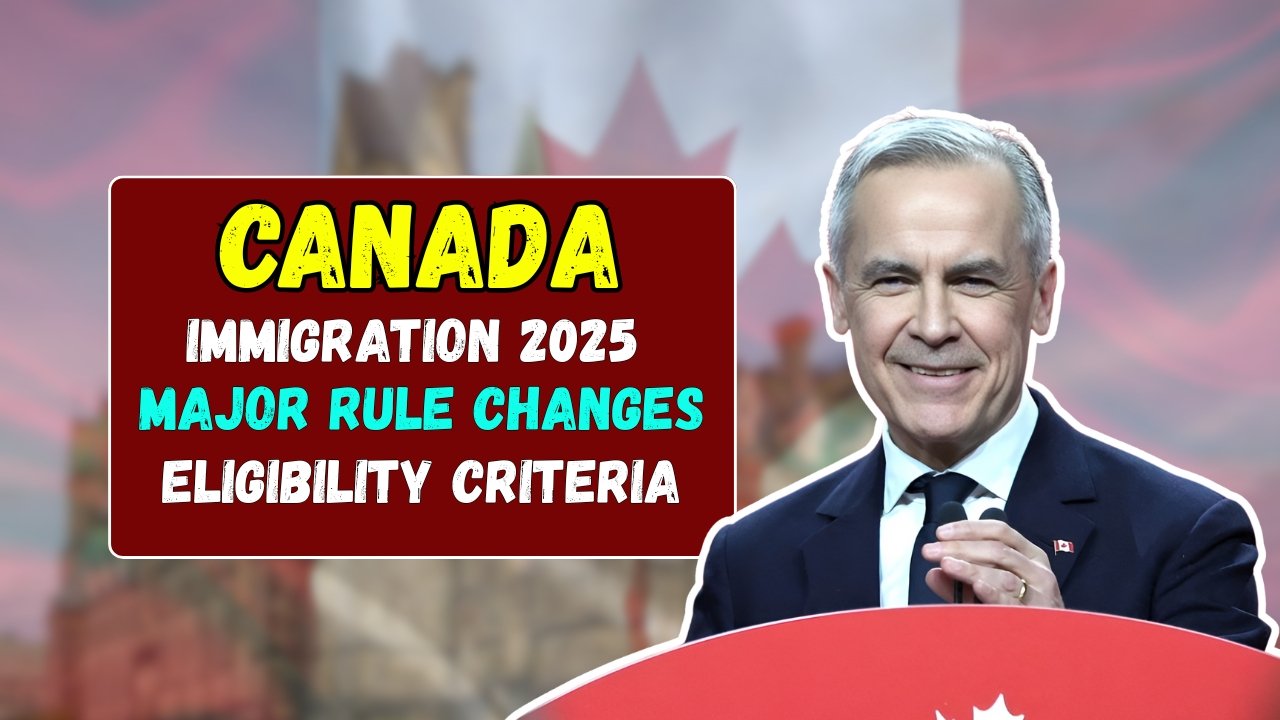Join on WhatsApp
Get the latest updates directly on WhatsApp – motivation, news & more!
Canada continues to be one of the most sought-after destinations for immigrants worldwide due to its high quality of life, stable economy, and diverse opportunities. In 2025, the Canadian government has introduced major changes to its immigration rules, aiming to streamline processes, improve eligibility criteria, and address labor market needs. Understanding these new rules is crucial for potential immigrants who wish to move to Canada for work, study, or permanent residency. This article provides a comprehensive overview of the new changes, eligibility requirements, and essential updates for aspiring immigrants.
Major Changes in Canada’s Immigration Rules
The 2025 immigration reforms focus on several key areas, including application processes, eligibility criteria, and pathways for skilled workers, students, and family reunification. One significant change is the introduction of updated Express Entry points for skilled workers. The Canadian government has increased the emphasis on candidates with experience in high-demand sectors such as healthcare, technology, and skilled trades.
Another major update involves processing times. The government has committed to faster decision-making for permanent residency applications, reducing delays and improving transparency. Digital applications are now mandatory for most categories, replacing paper submissions to simplify verification and tracking.
The government has also revised policies for temporary work permits, study permits, and family sponsorship programs. Applicants must now meet stricter documentation requirements, including proof of financial stability, health insurance coverage, and language proficiency. These changes are designed to ensure that immigrants are well-prepared for life in Canada and can contribute effectively to the economy.
Eligibility Criteria for 2025 Immigration
While eligibility varies depending on the immigration pathway, there are common criteria across most programs:
1. Skilled Worker Programs
Applicants must have relevant work experience, education, and skills in high-demand occupations. Language proficiency in English or French is mandatory, and candidates are evaluated based on points systems that consider age, education, work experience, and other factors.
2. Study Permits
Students must be accepted by a recognized Canadian educational institution. Proof of sufficient funds to cover tuition and living expenses is required. Language proficiency and health clearances are also mandatory.
3. Family Sponsorship
Canadian citizens or permanent residents can sponsor immediate family members, including spouses, dependent children, and parents. Sponsors must demonstrate financial stability and commit to supporting the family members for a set period.
4. Provincial Nominee Programs
Provinces have their own eligibility criteria to nominate candidates who meet local labor market needs. Candidates selected under provincial programs gain additional points for Express Entry, improving their chances of receiving an invitation to apply for permanent residency.
Essential Updates You Must Know
Express Entry Updates
Express Entry remains the fastest route for skilled immigrants, but 2025 changes include revised points allocation, prioritizing in-demand skills and regional needs. The Comprehensive Ranking System now awards additional points for work experience in Canada, strong language skills, and education credentials recognized in the country.
Temporary Work Permits
Temporary foreign workers now require stricter proof of employment offers, valid labor market assessments, and compliance with wage standards. Work permits are being aligned with pathways to permanent residency, offering long-term benefits for skilled workers.
Student Immigration
Study permits now come with clearer pathways to post-graduation work permits and permanent residency. Graduates from Canadian institutions with work experience in high-demand fields receive additional points in Express Entry, encouraging talented students to stay and contribute to the economy.
Family Sponsorship Changes
New rules aim to streamline the sponsorship process, reduce backlogs, and ensure that sponsored family members are financially supported. Sponsors must provide updated evidence of income and commit to fulfilling obligations for a fixed period, usually five years.
Health and Security Screening
Applicants across all immigration categories must pass updated health and security checks. These measures ensure public safety and reduce the risk of communicable diseases. Health examinations, police clearances, and biometric data are required for most applications.
Tips for Aspiring Immigrants
- Stay Updated – Canadian immigration rules are subject to frequent changes. Regularly check official government websites for the latest updates.
- Prepare Documentation – Gather educational certificates, work experience letters, language test results, and financial proof early.
- Understand Points Systems – If applying through Express Entry, understand how points are calculated and how to maximize your score.
- Consult Professionals – Immigration consultants or legal experts can provide guidance to ensure a smooth application process.
- Plan Ahead – Start preparing months in advance to meet documentation, language, and health requirements.
Conclusion
Canada’s immigration landscape in 2025 is evolving to better meet the country’s economic and social needs. The major changes include faster processing times, stricter documentation requirements, and revised points systems for skilled workers and students. Understanding eligibility criteria and staying informed about key updates is essential for anyone looking to immigrate to Canada. By following the new rules and preparing thoroughly, aspiring immigrants can navigate the process efficiently, increasing their chances of a successful move and a prosperous life in Canada.

